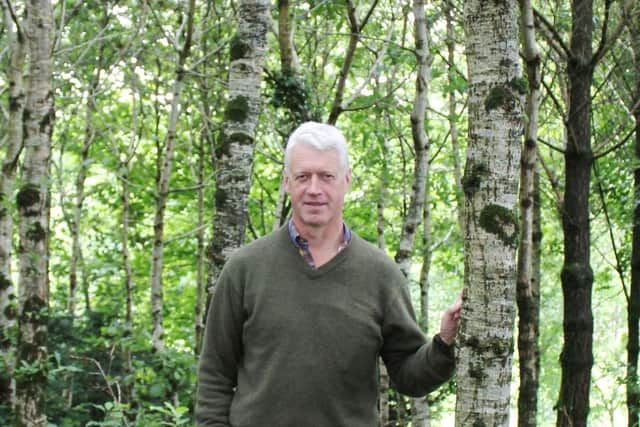Forestry sector cannot survive on speculation alone
and live on Freeview channel 276
If this is the case, then applications for both support measures would be accepted next year, covering the 2024/25 planting season.
“But this is only speculation,” he stressed.
By its very nature forestry is an industry that is developed around long-term planning decisions. The lifespan of all woodlands extends into the decades.


Advertisement
Advertisement
“So trying to plan ahead on the basis of conjecture does not represent a sustainable way forward for this crucially important land use sector.”
Forestry development has been identified by many groups, including the UK’s Climate Change Committee, as a critically important component to help alleviate the challenge of climate change.
But, according to John Hetherington, it’s hard to discern if this principle has been accepted by the Department of Agriculture, Environment and Rural Affairs (DAERA).
He explained:“Recent weeks have seen leading DAERA officials explaining the detail of the new agri-support measures at farmer meetings.
Advertisement
Advertisement
“However, the future role of forestry has not been discussed at these events. As things stand, we are at a cliff edge.
"Both the current FES and the SWGS schemes have run longer than their intended course, largely without revision or indexation.
“And we have absolutely no sense as to what measures will replace them. The possibility of rolling-over both schemes is an option. But this approach is akin to papering over cracks.
“We need to see the private forestry sector put on to a sustainable footing for the future. And the clock is ticking.”
Advertisement
Advertisement
Meanwhile, those landowners who did submit a 2023 FES application are still waiting for news on which projects will get the green light.
John Hetherington again: “It is expected to be December before the FES applications are fully processed.
“As a result, it will be January 2024, at the earliest, before any significant planting work can take place.
“This means that half of the current planting season will have passed before any meaningful volume of trees can be put into the ground.
Advertisement
Advertisement
“Future forestry support measures must allow for the planting of trees throughout the entire autumn/winter period.”
Here in Northern Ireland, we currently create 300 to 400ha of new woodland every year. Within the vision set out by the UK’s Committee on Climate Change, this figure should increase to c.4,000ha/year.
But whether it’s 400 or 4,000ha, there is one very practical impediment to making any of this happen.
John Hetherington explained: “And it’s this: there is now a fast-developing shortage in the number of suitably qualified people with the skills needed to establish management and maintain existing and new woodland plantations. For those, wishing to follow a career in forestry management at degree level, it’s currently a case of looking at university options in England, Wales, Scotland or the Republic of Ireland.
Advertisement
Advertisement
“However, the scope for organisations such as the College of Agriculture Food and Rural Enterprise (CAFRE) to provide forestry development courses for young people that complement other land use skills is immense.
“The starting point for all of this is creating the training opportunities that relate to the current need and then marketing them in the most effective manner.”